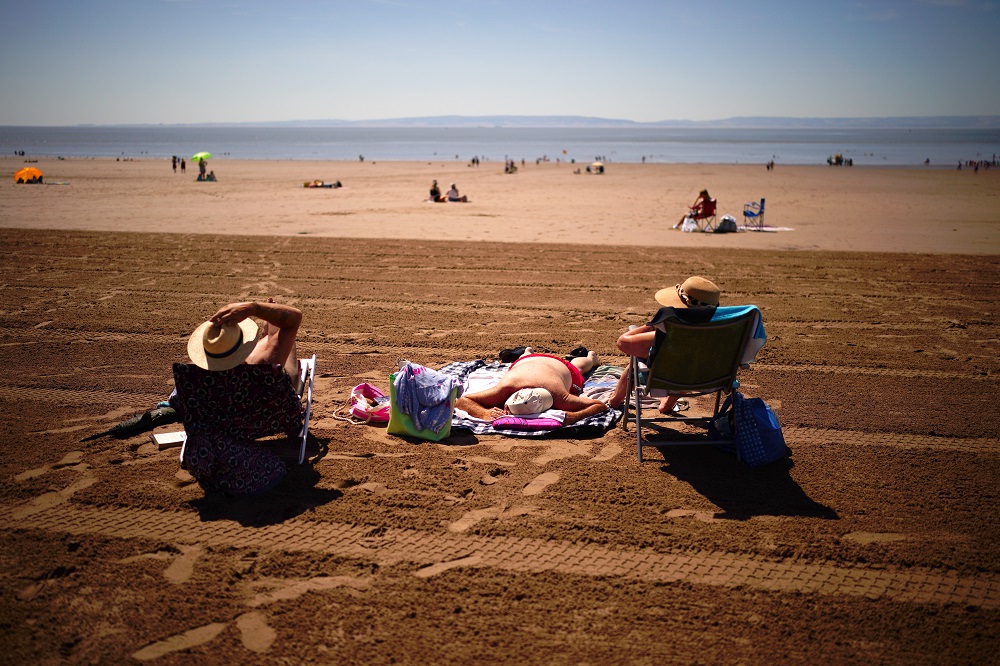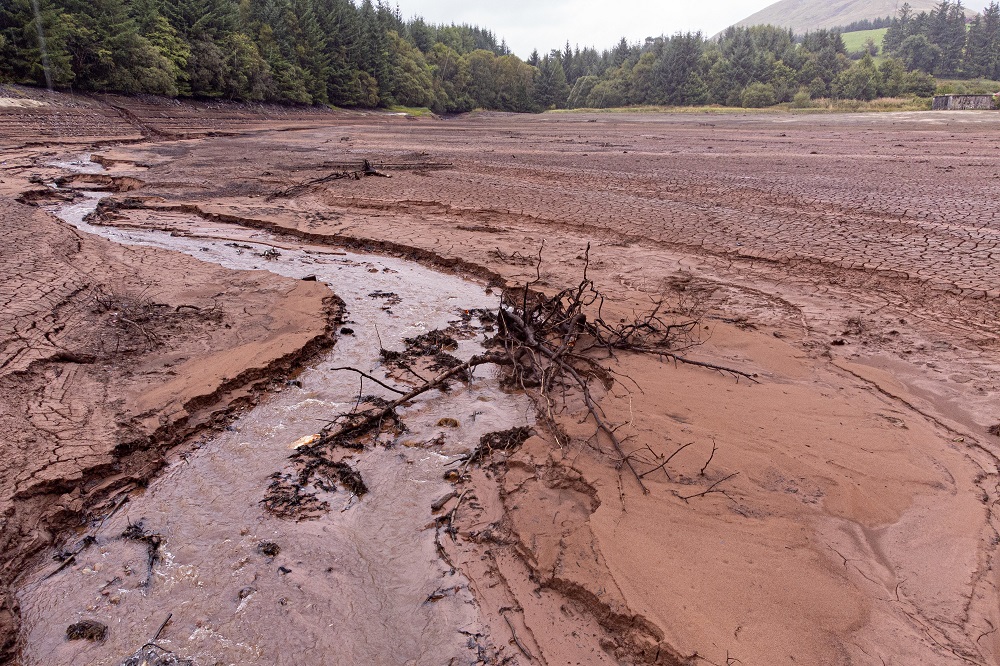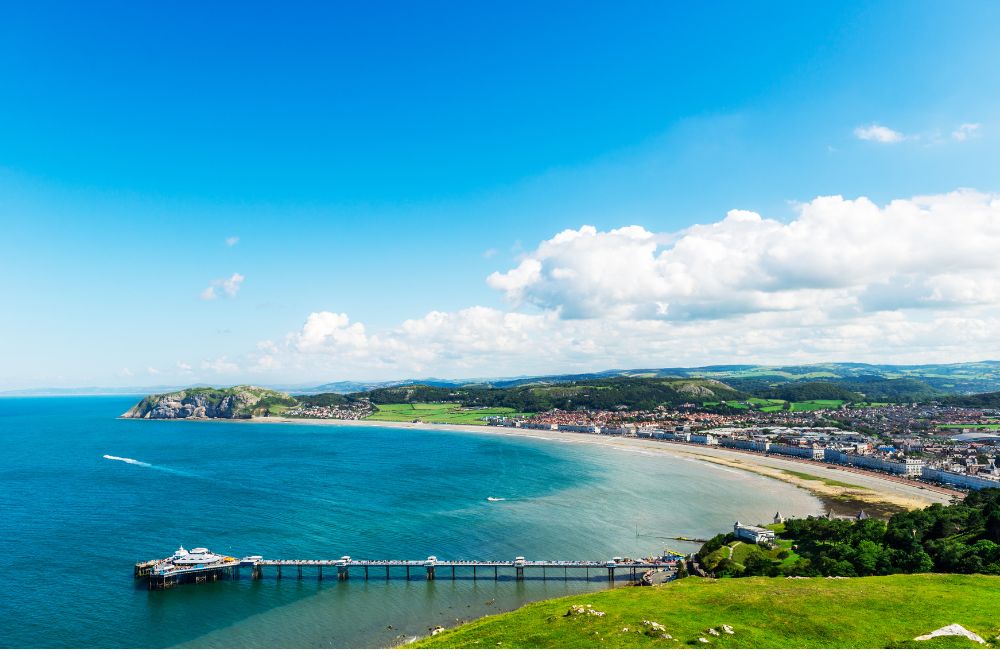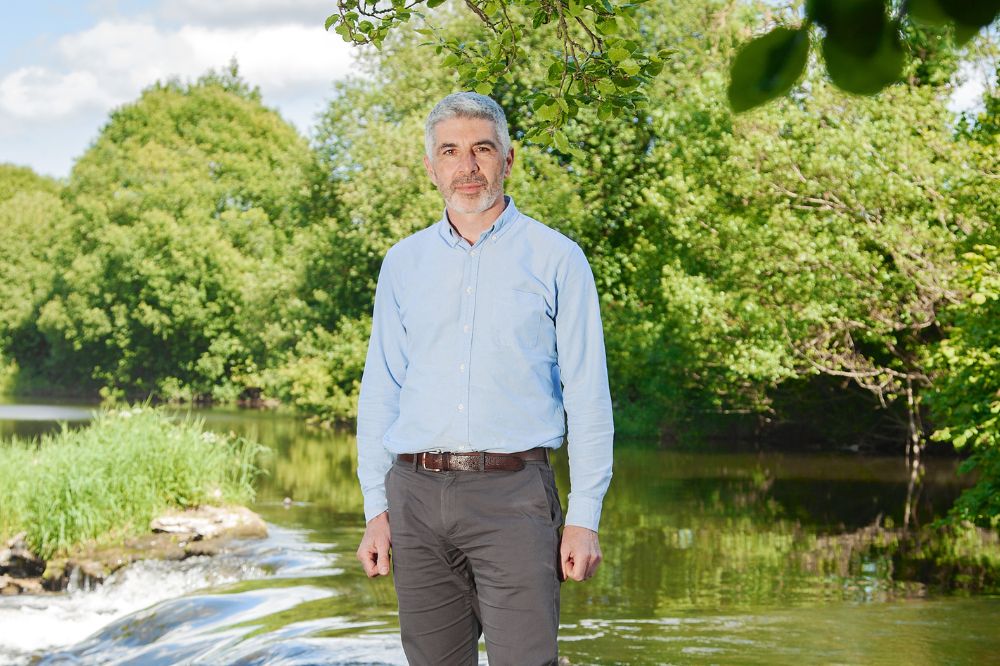Call for heatwaves in Wales to be named like storms

Emily Price
Calls have been made for heatwaves to be given official names in the same way that storms are.
It comes as Wales prepares for another bout of hot weather in the coming days with temperatures expected to reach 30 degrees celsius at the weekend.
If the extreme heat persists for more than three days it can be officially dubbed a heatwave.
Wales has already experienced two heatwaves this year – one in June and another in early July.

It followed the warmest spring on record.
The dry spell saw a sunken bridge from the 1800s make a rare appearance at Llwyn-On reservoir in Merthyr Tydfil when the water levels dropped dramatically.
Droughts
Met Office climatologists have warned that extreme heat events and prolonged droughts will become more common in summers of the future because of climate change.
The Future Generations Commissioner for Wales Derek Walker has called for heatwaves to be named in the same way that storms are so that the public can be properly prepared.

Mr Walker’s role is to act as an independent guardian of those not-yet-born, under the Well-being of Future Generations Act.
He says Wales urgently needs long-term plans for heatwaves and other climate impact that protect the most vulnerable.
Awareness
Mr Walker said: “If we keep treating extreme heat like good news for a beach day, we’re putting our heads in the sand when we should be protecting lives.”
The Met Office began naming storms in 2015 as part of a drive to improve communication and awareness during severe weather events.
Forecasters say the public is more likely to remember and respond to warnings when a storm has a name, leading to better preparedness.

Globally, extreme heat is more deadly than floods, earthquakes and hurricanes combined, taking about 500,000 lives a year.
Mr Walker said: “If we keep treating extreme heat like good news for a beach day, we’re putting our heads in the sand when we should be protecting lives.
“The Future Generations Report 2025 and our long-term vision, Cymru Can, make it clear: Wales needs solutions to heatwaves that work for everyone, not just the few with air con and a garden.”
Dangers
He added: “The growing number of academics’ call for heatwaves to be named like storms could save lives by making the invisible dangers of heat visible and urgent and help people, especially our older population and those with children, to prepare, and this should be part of our planning.
“Heatwaves are not just weather—they affect our health, economy and environment, and are a matter of justice, with Spanish research showing low-income people are far more likely to die during extreme heat events.”
Mr Walker’s latest Future Generations Report says climate risk needs to be core to decision-making and public services, like councils and health boards, should work with communities to assess their needs and vulnerabilities to sudden changes that come with a changing climate.
Cwm Taf Morgannwg Public Services board are already carrying out climate change risk assessments helping communities to understand how extreme weather events might impact their day-to-day lives.
The Future Generations Commissioner says he wants to see more climate solutions that work with nature to reduce the risk of impacts of heatwaves, such as wildfires, droughts and flash flooding.
He has suggested increased tree cover around streets and buildings, a strategy that has worked well in Medellín in Colombia where temperatures have been cut by 2°C by developing a network of green corridors.
Mr Walker said: “Working with nature can offer the best solutions to mitigate the impacts of heatwaves, such as preventing wildfire and drought, and increased tree cover around our streets and buildings significantly cools down the places where we live.
“We must involve people and nature in making climate adaptation a core public service, so action is effective for everyone. It saves money to prepare for climate impacts, and the cost of inaction is far higher.”
Support our Nation today
For the price of a cup of coffee a month you can help us create an independent, not-for-profit, national news service for the people of Wales, by the people of Wales.






Future Generations Commissioner for Wales. Salary £95,000 per annum, £1,826 per week for a bright idea of naming heatwaves. I remember a heatwave called “the 1976 heatwave” and I didn’t need a highly paid commissioner to remind me of that. Talk about jobs for the boys!! We have a health service falling apart at the seams but naming heatwaves appears to be more important to the WG. How many similar ” no real purpose” jobs are there? There won’t be “future generations” if we don’t take care of today’s generation dying because of a poor health service and others who… Read more »
Spot on. Exactly. £95,000 a year and that’s his one idea. He needs to go as he’s not serving any purpose. Shameful.
Huw’s Day Out is repeated throughout the Senedd in one form and another…
Solicitors don’t make good politicians, completely different work ethic needed…
The current squeeze on health services will pass with boomer generation so it makes no sense to abandon the next generation just to fix a temporary capacity issue.
Just using the word heatwave is scary enough. The risk of using too many names is it dilutes the effect it needs to have. But it is worth a try. The rapid changes between cool and hot in the UK makes acclimatising very hard.
They are going to keep happening and get worse. We leave future generations a terrible bill for not acting and listening to kooks.
And people suffer in heat waves, care needed for elderly and people that work outside, many issues that impacts the health care sectors.
Hosepipe ban on Yorkshire in case people missed it. Massive water shortfall across all area’s in the UK.
Climate coming at ya fast and strong and the US has put the idiots in charge, lets not do the same here eh Nige.
Unfortunately, I think naming extreme weather events make them sound more friendly to the public
It would seem every low pressure system gets a name these days, very few of which deserve to be called ‘storms’.
But it’s obvious the people who decide these thing have an ulterior motive.